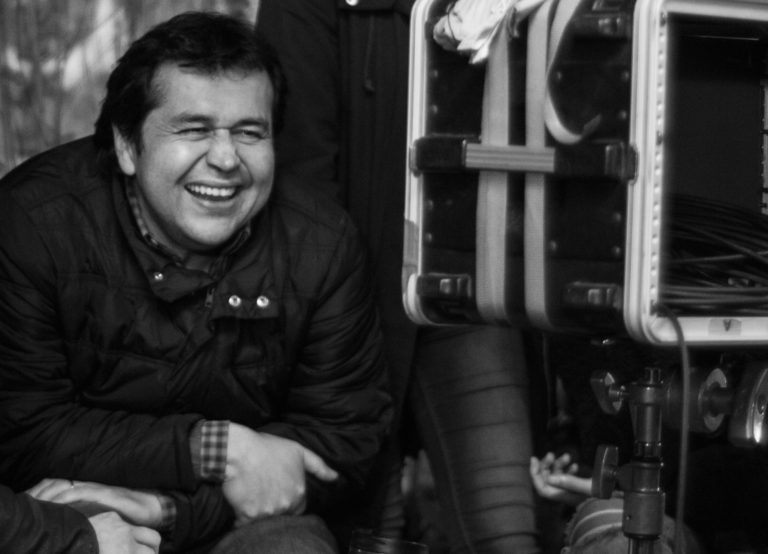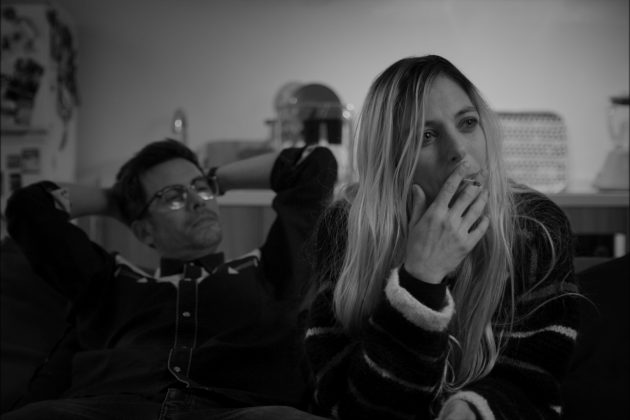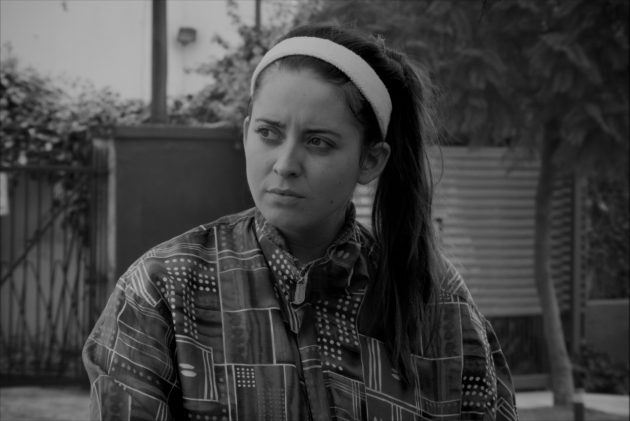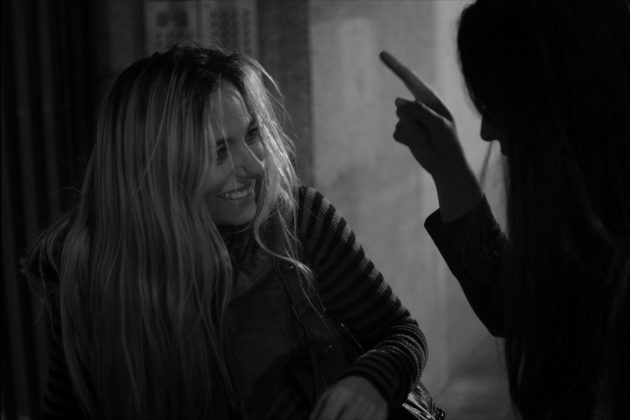
The Man Who Writes Women: Chile’s Gonzalo Maza speaks about his Directorial Debut ‘Ella Es Cristina’
31 March, 2021Sounds and Colours speaks to the screenwriter behind the Oscar-Winning A Fantastic Woman about his directorial debut Ella Es Cristina.
Gonzalo Maza is a Chilean screenwriter, film critic, producer and director. Together with director Sebastián Leilo, he co-wrote the screenplay for Una Mujer Fantastica (A Fantastic Woman, 2017) about a transgender woman who becomes the suspect for her boyfriend’s accidental death. The film won Chile its first Oscar in the category Best International Feature Film in 2018.
A long-time collaborator with Leilo, Maza also wrote the screenplay for Gloria (2013) about a 58-year-old divorcee navigating the singles scene (which won Paulina García the Silver Bear award for Best Actress at the Berlin Film Festival in 2013, and which Leilo later remade into English as Gloria Bell, starring Julianne Moore) and The Year of the Tiger (2011).
Ella es Cristina (This is Cristina, 2019) is Maza’s directorial debut. It explores how the romantic entanglements of two long-time, thirty-something friends, impacts on their relationship.
Sofia Serbin de Skalon caught up with Gonzalo Maza for a Zoom chat during the last edition of the Raindance Festival in London where Ella es Cristina was screened.
I’ve read that you describe yourself as anti-male. The definition in Spanish would be anti-machista. It’s interesting to me because that is what I felt Gloria, A Fantastic Woman and Ella es Cristina have in common: they show what it is like for a woman to navigate a machista world.
Yes, of course, although I think I’ve evolved since then in my thinking, and I’d say that I’m now more anti-male as opposed to anti-machista. It’s easy to be anti-machista. Machismo is a very aggressive way of understanding the world. It’s attached to a very primitive view. It’s embarrassing.
I understand. But what I found interesting, as a Latin American, was that I recognised the worlds you were showing in the films, especially the male characters that embody a type of machismo that is very Latin. I know a lot of people like these male characters! So for me it was very specifically Latin.
I’ve been living here in London for four years. Ella es Cristina was filmed before I came here. It took me a long time to edit it and it didn’t come out in Chile until July 2019. Then it was shown in festivals in Mexico, Sweden and Miami. So the whole thing was a super slow process in which I feel I’ve evolved.
The film started as an idea for a comedy. I wanted to make a comedy about women in their thirties (a little younger than me: I’m 45). I had a lot of friends who were like that and it made me laugh. What started off making me laugh then didn’t make me laugh. In the beginning it seemed as if all these women were all a little bit lost in their lives. They were all talented or intelligent or funny – they had a lot to offer – with a lot of attributes. But they were all going out with horrible guys. [Laughs.] Really horrible.
That was my starting point. An exploration. Trying to understand why that was the case. That was my first question. And my first response was that they were lost. But when I started making the film and editing it with Andrea Chignoli, we started to find that the film was going into a subject that was a lot more serious. I hadn’t really seen that before. I only saw it when I started working with her. We re-filmed some scenes and that’s when the real film emerged. I realised it was actually quite sad. It was much sadder than I had ever imagined.

Yes, exactly. That’s what I wanted to say because Gloria is also sad. It shows a generation older than us who no longer have their youthful beauty and that power, and who are negotiating with what they have left. But then you see these younger girls who seem to have it all and they are still making terrible choices.
In Ella es Cristina, what I thought was interesting was that Susana’s mother is the one who seems to have it figured out with her younger lover. Why was that? Was there a message there? Or was it a contract?
It was a contrast. Because I also don’t like the idea of women as victims.
Not victims, but in these three films you seem to be showing something real: that for the modern woman these are the problems that they’re now facing in relationships. Perhaps before a Latin American women might have put up with more. Now they are asking for more.
That’s what I thought was funny. That is the illusion and you would have thought that would happen. You would think women are more empowered now and that they are asking for more and that men would stop being so brutish but actually the women are still carrying on with the same idiots; nothing has changed.
When I showed the film in Sweden there was a feminist march in the street the same day of the screening. The women were shouting: don’t beat us, don’t kill us. And then at the Q&A the moderator stated that this was a Latin problem. I said: I don’t think so; let’s ask the women in the audience. I think the problem is all over the world. And of course people laughed.
We are just scratching the surface of the problem. And it appears in the most grotesque way, in comedy. And it’s not that I want to position myself in a certain way, it interests me as a screenwriter. Man is in crisis. In a deep crisis. And this crisis that he finds himself in, is because he is losing power. Not even a lot of power, it’s just a little bit. But it’s enough to put him in crisis.
The empowerment of women and the whole movement of #NiUnaMenos. It’s a struggle on both sides. Men feel as if they are losing power, and women feel that they are being empowered and they still haven’t finished negotiating their territory.
Exactly, exactly.
It’s as if no one is very clear on what their roles are now. That is what I think is interesting.
Exactly. And so the only thing they hold on to, well, men now are victimising themselves so much. They seem surprised. But also, machismo is still there but in a more private form: the bad jokes, etc, they’re still there. On WhatsApp, say, like in the fathers’ groups from school. The difference now is that there is more hypocrisy.
But that is a problem. Because if it hides underground it becomes worse.
Exactly. It’s terrible. But I have to look at it with humour.
You know another reason we have to laugh? Because masculinity is very ridiculous. Because everyone in power is ridiculous. The kings are ridiculous, the presidents are ridiculous. White men are ridiculous. Everything seems ridiculous. And we as men are intensely ridiculous. And that is funny to me. I find it humorous to laugh at that. But it is at a cost. It isn’t free.
I was going to ask. How do your friends, or the men in the audience who have seen the film, respond to it?
Badly. [Laughs.]
What about your close friends?
My close friends are like… Ah, ok. Yeah it is quite amusing. Whatever. But nobody wants to admit to being like that.
But on the side of the women, it is much more emotional to see the response. On the one hand, there’s laughter: like they might say: I went out with someone like that once. And then the other response is terrible, a girl might say: Cristina makes me angry, she is so dumb, she doesn’t realise. A friend who is telling you to wake up, and then you end up arguing with your friend instead of going against the guy.
My interpretation of Cristina was that she was a woman who couldn’t be alone. She goes from one bad relationship to another. Maybe it is a question of self-esteem too. Her friend Susana seems to have more self-esteem and tells her own boyfriend to get lost. Maybe Susana also wants to be in a relationship and suffers for not being in one but at least she has the strength to say she is not going to stay in a situation that is bad for her. While with Cristina it just seems that she puts up with her lot.
But both paths are bad.
Yes and that’s what’s sad. Because neither of them wins. The mother is the one who is winning. You have to aim to be like the mother. [Laughter.]
So… Another question: why did you chose to call the film Ella es Cristina when both the girls were equal protagonists? Or did you start writing the film with Cristina as the protagonist?
Yes, it was always like that. But then when I started working with the actress who plays Susana, Paloma Salas, I thought about writing the film with her. But it was a disaster. She doesn’t really write and it didn’t work. We talked a while and then it occurred to me that she could be Cristina’s friend. She has a lot of talent and everything she does is very natural so she naturally came to take on a bigger role.
In reality I was interested in a romantic story. Friendships are a type of love, and so it seemed to me that you could tell the story like a romantic comedy – they are together and then they split up – but as I said before, it seemed a little bit superficial, just to leave it like that. So I thought it was much more interesting to explore, what happens for some time with Cristina. But I kept thinking of the film as being about two friends, but people would say to me: this is about a girl who has a friend. So that conversation remains open. I’m thinking I might do another film called Ella es Susana.

I was just going to ask you that! That would be Part Two.
One of the things I loved about the film was how natural it felt. It was a romantic comedy but it felt very natural. Almost like a fly-on-the-wall documentary. I read that you’d studied at the University of Texas in Austin, and I wanted to ask if the films of Richard Linklater at all influenced you.
Yes, absolutely! I met him. I had a class with him on Production. I remember him and a lot of the things he said and I’ve followed his work and always thought he was very interesting.
The movement of those indie films coming out of Austin is super interesting. I actually thought the film seemed a bit like an American indie but with a Chilean touch.
Yes it’s like I wanted to make an American indie film, but in Ñuñoa, which is the neighbourhood that I come from in Chile. With some Raúl Ruiz mixed in.
So that’s why you chose to shoot it in black and white also?
Yep. To give it that indie feel.

Also, at which point did Salma Hayek get involved as a producer? I read that she was very intrigued by the script and the characters.
It was actually something that happened by chance. When we did A Fantastic Woman we went to LA to the Independent Spirit Award and she presented the prize for Best International Film and we won it. We had a friend in common who introduced us and she asked me where I lived. I said London, and she told me that she also lived in London, so we agreed to do something together. So we got together here and started collaborating on some of her projects and at one point she asked me what I was working on and I showed her the film and she got involved as executive producer as a way to feature on the project.
How was it for you as someone who writes, to suddenly find yourself behind the camera? Was it very different? Or did it feel like a natural progression?
It’s incredible to direct. It is much better than writing! Writing is horrendous, boring, anguishing, solitary. Nobody really cares. Directing is glamorous, there’s coffee, there’s food. You are the centre of attention. That’s why everyone wants to direct. It’s fun. But I also wanted to develop something autonomous.
Now I would like to go back to the subject of men. I am a bit embarrassed to keep writing about women. Especially now that women write about women. I feel it is more interesting to see films made by women and it seems a bit patronising to be a man who only writes films about women.
If you had positioned yourself as a writer who writes female characters it could come off as patronising. But the characters you’ve written are terrific: you don’t see many female roles like that. It important for us to be able to see those characters.
Yes that is true. I do think it is good for both sides to write about the opposite sex.
But something I discovered in this film. To film men in such a crude way: there is something interesting there to explore, the masculinity in crisis, this sensation of ridiculousness. It all seems very ridiculous.
Well I think it would be great if you wrote a film about a guy that didn’t have any of these problems!
That would be very boring.
But seriously, I have the feeling that for that to happen, it’s hard. It’s like telling millionaires to have a social conscience. They can have one, or a bit of one. As long as they don’t lose what they already have. With men it is the same. You can ask them to give women a space but as long as they can carry on watching football and having their space. I find there is a huge selfishness there.
So what is the solution?
I don’t know! How should I know? [Laughs.] There is no solution.
Yes there is. There is hope. Especially when sexual identity becomes more fluid. Which is what is happening with the new generations. Younger people don’t hold onto that strong masculinity and everything is more variable. But I don’t think it will happen in our generation.
I think deep down it is interesting because we are witnessing an important period. Not just because of Covid, etc but because we are deciding how society will be going forward. Not in the same idealistic way you saw in the 1960s but in a way that is much more pragmatic. Within that pragmatism, sexual identity has opened like a fan, so it is not taboo to be homosexual, bisexual, etc.
I think people will lean more on their affections, rather than their sexual identify. So I think there is something there but it has a long way to go. But it is more possible than for men to take stock and give up their space.
Click here to read Amy Hancock’s review of Ella es Cristina.
Ella es Cristina is currently available to stream via Amazon Prime. A Fantastic Woman is also available on Amazon Prime.
Follow Sounds and Colours: Facebook / Twitter / Instagram / Mixcloud / Soundcloud / Bandcamp
Subscribe to the Sounds and Colours Newsletter for regular updates, news and competitions bringing the best of Latin American culture direct to your Inbox.

